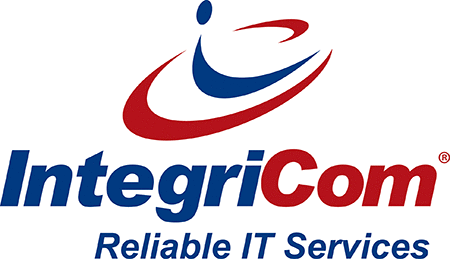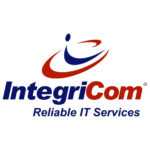In today’s digital economy, small and medium-sized businesses (SMBs) face mounting pressure to modernize their IT infrastructure while maintaining data security and cost efficiency. Yet, despite the rapid adoption of cloud technologies across industries, many SMB leaders remain hesitant, driven by persistent myths and misconceptions surrounding cloud security, cost, and control.
The truth is that cloud computing is not only secure and cost-effective but also a catalyst for operational resilience and business growth. Leading cloud providers now deliver security measures that surpass traditional on-premises systems, offering enterprise-grade protection once reserved for large corporations.
This blog debunks the most common myths about SMB cloud computing, revealing how, when implemented strategically, the cloud can empower your business with unmatched flexibility, security, and long-term value.
Key Takeaways
- Cloud security myths, such as the belief that the cloud is less secure than on-premises solutions, are unfounded; leading providers implement robust security measures that often exceed traditional options.
- Contrary to the misconception that cloud computing is more expensive, it offers long-term economic advantages, allowing businesses to optimize resources and shift to a pay-as-you-go model, significantly reducing IT costs.
- Adopting cloud solutions enhances operational efficiency for SMBs by enabling remote work, real-time collaboration, and providing reliable disaster recovery options, ultimately ensuring business continuity.
Common Misconceptions About Cloud Security
Common misconceptions about cloud security often stem from outdated information and a lack of understanding of the robust security measures that cloud service providers implement. These cloud computing myths and common myths can hinder businesses from adopting cloud solutions, despite the numerous advantages that cloud computing offers. For example, the belief that cloud environments are inherently less secure than on-premises solutions remains a common concern and a persistent myth about cloud. However, the reality is that cloud-native technologies, when configured correctly, can enhance security compared to traditional options. Additionally, addressing security myths can further clarify the benefits of cloud adoption.
Many businesses also worry that adopting cloud solutions will expose them to more security risks. However, leading cloud providers invest significantly in their security infrastructure, implementing advanced threat detection and compliance certifications. This investment ensures that cloud platforms are equipped to handle potential threats effectively, providing a level of security that many on-premises solutions cannot match. Despite these robust measures, some businesses worry that cloud computing is not secure enough for them.
Moreover, the belief that cloud computing costs more than on-premises solutions is another common misconception. While there may be initial costs associated with cloud migration, the long-term economic advantages of cloud adoption often outweigh these concerns. Cloud services enable businesses to scale effectively, optimizing resources and avoiding significant upfront capital expenditures.
Addressing these misconceptions allows businesses to make more informed decisions about adopting cloud solutions.
Myth 1: The Cloud Isn’t Secure Enough for Small Businesses
A common misconception is that the cloud isn’t secure enough for small businesses. Many SMB owners believe that on-premises solutions, with their physical servers, provide a safer option. This belief is rooted in the idea that having direct control over the hardware equates to better security. However, this couldn’t be further from the truth. Leading cloud providers invest significantly in their security infrastructure, implementing advanced threat detection and compliance certifications to safeguard data effectively. These robust security measures ensure that cloud environments are often more secure than traditional on-premises solutions.
Scalability in cloud computing allows businesses to expand or reduce IT resources effortlessly as their needs evolve. This flexibility improves operational efficiency, controls costs, and supports continuous growth.
Cloud environments benefit from economies of scale, allowing cloud service providers to allocate substantial resources towards enhancing security. This includes implementing firewalls, encryption, and multi-factor authentication, which collectively create a more secure environment for sensitive business data. By leveraging these advanced security solutions and enterprise-grade security, SMBs can protect their data more effectively in the cloud than they could with on-premises infrastructure.
Myth 2: Cloud Computing Costs More Than On-Premises Solutions
Another common misconception is that cloud computing costs more than on-premises solutions. This belief often stems from the upfront costs associated with cloud migration and the perception that ongoing cloud service fees will accumulate to be more expensive than maintaining physical servers. However, this is a short-sighted view. Cloud services enable businesses to scale effectively, avoiding the significant capital expenditures required for traditional infrastructure and managing cloud costs.
Understanding on-premise vs cloud data storage is vital for businesses seeking the right balance between control, cost, and accessibility. While on-premise systems offer physical oversight, cloud data storage delivers greater scalability, flexibility, and security.
By adopting cloud solutions, organizations can optimize resources and scale resources while shifting from capital expenditures to operational expenditures, thus lowering overall IT costs. The pay-as-you-go pricing model in cloud services allows SMBs to only pay for the resources they use, significantly reducing hidden costs associated with power, cooling, space, and IT staff.
This economic advantage often leads to overall savings, making cloud computing a more cost-effective option in the long run.
Myth 3: Moving to the Cloud Means Losing Control of Data
Many SMB owners fear that moving to the cloud means losing control over their data. This fear is often based on misconceptions about how cloud services work and the nature of data control. In reality, cloud tools provide enhanced capabilities for data management and tracking, contrary to the belief that businesses will have full control over their data.
Cloud migration with outsourced IT services ensures a smooth, secure, and efficient transition to the cloud. By entrusting experts to manage the process, businesses can minimize downtime, strengthen cybersecurity, and maintain operational continuity.
Cloud platforms offer advanced management tools that give SMB owners better visibility and control over their data than traditional on-premises solutions. The enhanced data management capabilities provided by cloud services allow businesses to monitor and track their data more effectively, including cloud deployments. This includes real-time monitoring and advanced analytics, which offer greater insights into data usage and access patterns, including Google Cloud.
By adopting cloud solutions, SMBs can achieve better data control and management, dispelling the myth that cloud migration leads to the loss of control over data.
Understanding Cloud Security Measures

Fully appreciating the security of cloud computing requires understanding the comprehensive measures that cloud providers implement. Cloud security encompasses a range of procedures and technologies designed to shield organizations from various threats. For small businesses, implementing best practices in cloud security is crucial to safeguard sensitive information and maintain operational integrity.
Robust security practices can significantly reduce the risk of data breaches for SMBs utilizing cloud services. These practices include:
- Regular compliance checks to ensure alignment with legal and regulatory requirements
- Routine security audits to identify vulnerabilities and ensure adherence to compliance requirements, addressing potential security gaps
- Establishing strict access controls to minimize the chances of unauthorized access to sensitive information.
Let’s delve deeper into specific security measures that make cloud environments secure.
Multi-Layered Security Protocols
Multi-layered security protocols are at the heart of robust cloud security. These protocols involve implementing various security measures at different stages of data handling, including encryption, firewalls, and multi-factor authentication, to safeguard sensitive business data from potential breaches. Encryption is applied across all stages of data handling, including when data is in transit and in use, ensuring that data remains secure even if intercepted.
By adopting these protocols, SMBs can significantly enhance their cloud security posture.
Shared Responsibility Model
The shared responsibility model is a critical aspect of cloud security that SMBs must understand. This model delineates the security responsibilities between the cloud provider and the customer. While cloud providers are responsible for securing the cloud infrastructure, customers are responsible for securing their data within the cloud.
Proper configuration and tools, such as SentinelOne, can help ensure compliance and security within cloud environments. Understanding and implementing this model is essential for maintaining robust cloud security.
Continuous Monitoring and AI-Powered Threat Detection
Continuous monitoring is an essential security measure that allows organizations to maintain constant vigilance over their systems. This continuous oversight helps identify unusual patterns that could indicate potential security breaches, enabling swift action to mitigate risks before they escalate.
Integrating continuous monitoring with AI-powered threat detection further enhances cloud security by automating the detection of threats and responding to incidents quickly. By leveraging AI-driven systems, SMBs can proactively safeguard their data and address vulnerabilities in real-time.
These advanced security measures ensure that businesses can maintain a high level of security, preventing potential threats from causing significant damage. Continuous monitoring and AI-powered threat detection are indispensable components of a robust cloud security strategy.
Benefits of Cloud Computing for SMBs

Cloud computing offers numerous benefits for small and medium-sized businesses, making it a compelling choice for modern enterprises. One of the most significant advantages is the potential for cost savings and resource optimization, including:
- Reducing operational expenses
- Avoiding hidden costs associated with traditional infrastructure
- Optimizing resource utilization
- Shifting from capital expenditures to operational expenditures further lowers overall IT costs.
Beyond cost savings, cloud computing enhances operational efficiency by facilitating remote work and real-time collaboration. Cloud solutions provide employees with access to files and applications from anywhere, boosting productivity and responsiveness.
Moreover, cloud-based disaster recovery options ensure that business operations can continue even during data loss or cyber incidents, thanks to data being backed up across multiple locations. These benefits make cloud computing an attractive option for SMBs looking to improve their operational efficiency and resilience.
Cost Savings and Resource Optimization
One of the primary benefits of cloud computing for SMBs is the potential for significant cost savings and resource optimization. Key points include:
- The pay-as-you-go pricing model in cloud services allows businesses to only pay for the resources they use.
- This model significantly lowers operational costs.
- It prevents unnecessary expenses from unused resources.
- It aligns cloud spending with actual consumption.
Additionally, utilizing cloud services enables small businesses to shift from substantial capital expenditures to manageable operational costs, potentially reducing overall IT spending by 30-50%. This shift allows SMBs to allocate their financial resources more efficiently, investing in growth and innovation rather than maintaining physical infrastructure.
Enhanced Operational Efficiency
Cloud platforms significantly enhance operational efficiency by facilitating remote work and real-time collaboration. Employees can access files and applications from anywhere, which boosts productivity and collaboration. This capability is particularly beneficial in today’s increasingly remote work environment, where teams need to collaborate seamlessly across different locations.
Moreover, cloud solutions enable real-time collaboration among teams, leading to improved productivity and faster decision-making processes. By providing access to shared resources and tools, cloud computing facilitates better collaboration among remote teams, enhancing overall efficiency and responsiveness.
This enhanced operational efficiency makes cloud computing an invaluable asset for businesses and SMBs.
Disaster Recovery and Business Continuity
Disaster recovery and business continuity are critical considerations for any business, and cloud computing offers robust solutions in this regard. Cloud-based disaster recovery options provide:
- Continuation of business operations even during data loss or cyber incidents
- Data backed up across multiple locations, ensuring redundancy
- Minimization of downtime
- Quick restoration of critical data after an outage
For many businesses, the ability to quickly recover from a disaster is essential for maintaining operations and customer trust. Cloud-based disaster recovery solutions provide SMBs with the assurance that their data is safe and can be restored promptly in the event of a disruption, ensuring business continuity. This capability is a significant advantage of adopting cloud solutions.
Security Best Practices for SMBs in the Cloud
Implementing security best practices is crucial for SMBs to maximize the benefits of cloud computing while mitigating potential risks. One of the most important practices is conducting regular security audits and compliance checks to identify and rectify vulnerabilities in cloud systems. Regular audits help maintain robust security standards and ensure compliance with legal and regulatory requirements.
In addition to audits, training employees on security best practices is crucial. Regular training programs keep employees informed on the latest security threats and best practices, fostering a culture of security within the organization.
Finally, establishing strong access controls, such as multi-factor authentication and regular reviews of access permissions, is critical for safeguarding sensitive data in cloud environments. Following these best practices helps SMBs enhance their cloud security posture.
Regular Security Audits and Compliance Checks
Regular security audits and compliance checks are essential for maintaining robust security standards in cloud environments. These audits play a critical role in comprehensive security, addressing vulnerability management and compliance regulations. Leading cloud security tools offer capabilities for thorough cloud security audits, enhancing the overall security posture of SMBs.
Routine audits help businesses identify and rectify vulnerabilities, ensuring their cloud systems remain secure and compliant.
Employee Training and Awareness Programs
Training employees on security best practices is a fundamental aspect of maintaining a secure cloud environment. Regular training programs help prevent common user errors, which are often the weakest link in security. Ensuring that employees are aware of the latest security threats and best practices fosters a culture of security within the organization.
Implementing security awareness initiatives reduces the risk of breaches and enhances overall security.
Implementing Strong Access Controls
Establishing strong access controls is critical for safeguarding sensitive data in cloud environments. Multi-factor authentication (MFA) is a crucial component of these controls, providing an additional layer of security by requiring users to verify their identity through multiple methods before accessing sensitive information. This significantly reduces the risk of unauthorized access and enhances the overall security posture of the cloud environment.
Regularly reviewing and updating access permissions is also essential. Ensuring that users only have access to the information necessary for their roles minimizes the chances of unauthorized access to sensitive data. Implementing robust access controls and regularly reviewing user permissions helps businesses maintain high security and protect sensitive information effectively.
Final Thoughts
Cloud computing has redefined how SMBs operate, offering greater scalability, cost efficiency, and robust disaster recovery than traditional IT infrastructures. By debunking outdated myths about cloud security, cost, and data control, businesses can better understand the strategic advantages of adopting cloud solutions. The reality is clear: the cloud delivers enterprise-grade security, operational flexibility, and long-term value that empower SMBs to compete effectively in a digital-first landscape.
As a trusted IT company in Atlanta, IntegriCom specializes in guiding small and medium-sized businesses through secure and seamless cloud adoption. With customized IT solutions, 24/7 monitoring, and multi-layered cybersecurity protocols, we ensure your transition to the cloud is not only efficient but fortified against modern cyber threats. Partnering with us means embracing innovation with confidence, knowing your business is protected, optimized, and ready for the future.
Frequently Asked Questions
Is the cloud secure enough for small businesses?
Absolutely, the cloud is secure enough for small businesses, as major providers prioritize robust security measures, including advanced threat detection and regulatory compliance, to protect data effectively.
Does cloud computing cost more than on-premises solutions?
Cloud computing typically costs less than on-premises solutions due to its pay-as-you-go pricing model, which helps avoid large capital expenditures and reduces overall IT costs. This model can lead to significant long-term savings for businesses.
Will moving to the cloud mean losing control of my data?
No, moving to the cloud can enhance your control and visibility over your data with advanced management tools available on cloud platforms. This transition can actually improve your data governance.
What are the benefits of cloud computing for SMBs?
Cloud computing provides SMBs with cost savings, improved operational efficiency, and strong disaster recovery solutions. These advantages make it an ideal choice for enhancing business resilience and performance.


